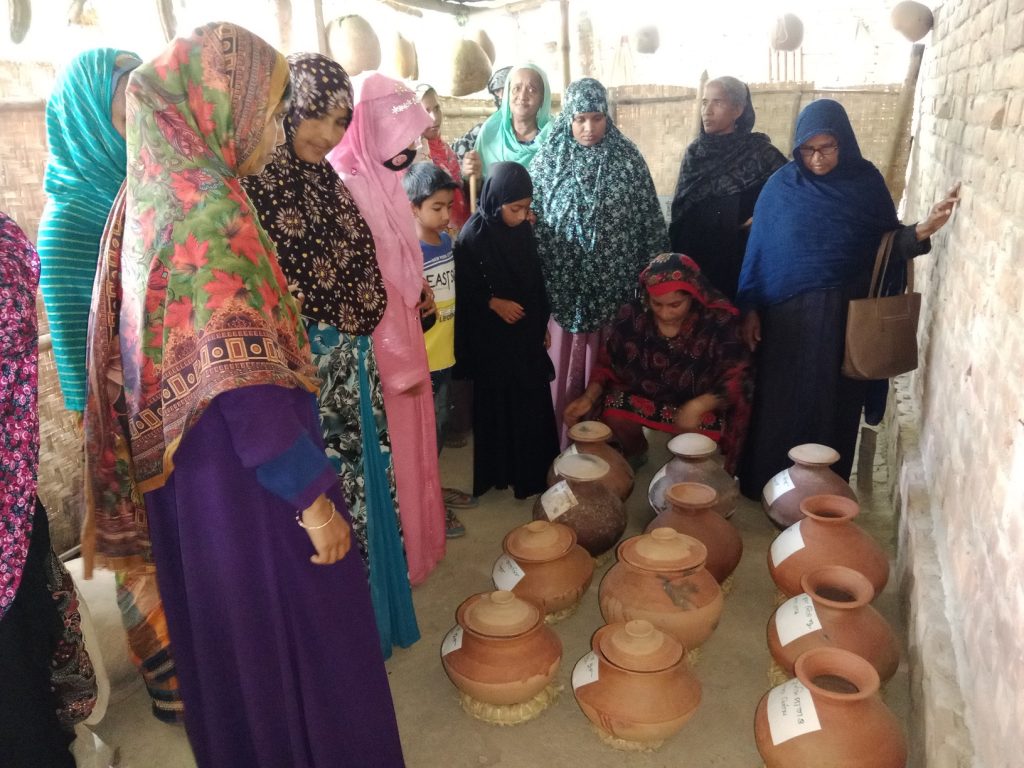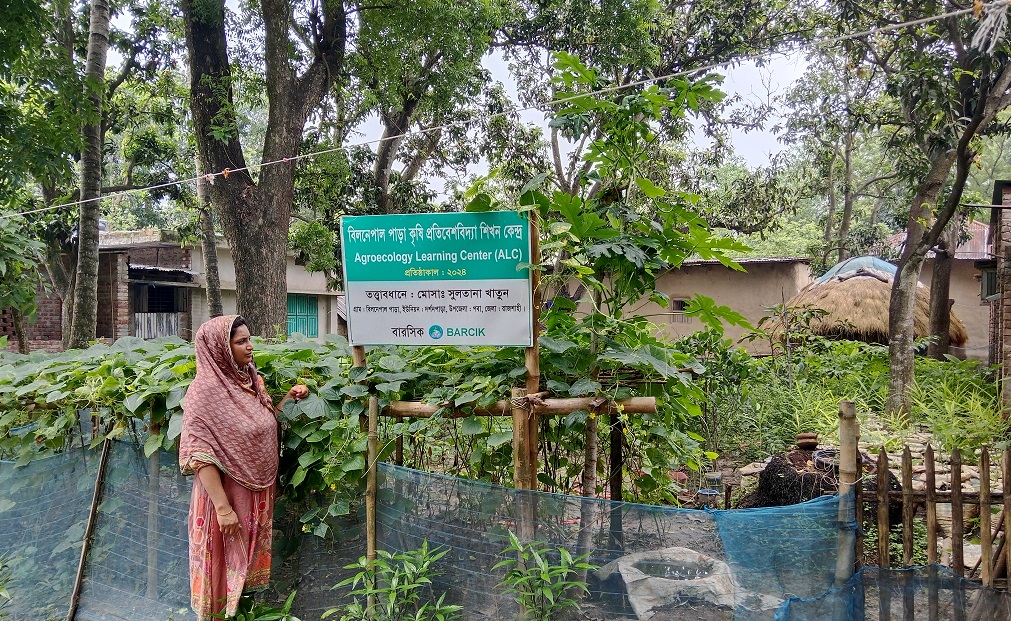By Sultana Khatun from Rajshahi
Bil Nepalpara is a village in Dorshonpara Union of Paba Upazila, Rajshahi, where over 350 families live. More than 80% of families depend on farming. BARCIK has been working at this village since 2016 to promote agroecology encouraging farmers farming diverse vegetable, seed conservation and exchange, awareness events, and research etc.

Sultana Khatun is one of the women leaders in the village. She started small-scale homestead vegetable farming and native seed conservation in 2017. Later on, she expanded her works into poultry rearing and community seed exchange. During the COVID-19 pandemic, her home became a model “Model Shotobari” site, promoting safe vegetables and local seed sharing. In 2024, it was formally named the Bil Nepalpara Agroecology Learning Center (ALC), with Sultana as coordinator.
The center has a meeting room for 30 people, an elected committee, and records of members and seed exchanges.

Key practices of this ALC include:
- Making 10 types of organic pesticides using local ingredients (neem, ash, dhutura extract, etc.) and sharing knowledge with neighbors.
- Producing vermicompost: from 3 pits in 2024 to 40 now, encouraging other women to adopt it.
- A community seed bank, started in 2018, conserves 120 types of fruit, vegetable, and medicinal seeds exchanged with over 1000 people yearly.
Research initiatives include sack cultivation of ginger, turmeric, and yam, as well as native poultry and livestock management.

Today, about 2,500 people benefit directly or indirectly from this Bilnepara ALC. It has hosted visitors from Jahangirnagar University and international research teams. Sultana and BARCIK plan to expand the role of ALC as a hub of local knowledge and agroecological practices for the entire union in the future.
